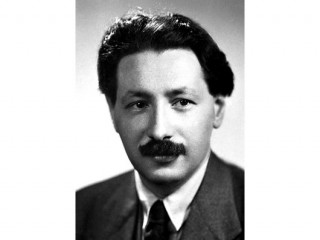
Ernst B. Chain biography
Date of birth : 1906-06-19
Date of death : 1979-08-12
Birthplace : Berlin, Germany
Nationality : German
Category : Science and Technology
Last modified : 2011-08-18
Credited as : Pathologist, penicilin, Nobel Prize in Physiology or Medicine
1 votes so far
Working with pathologist Howard Florey, Ernst Chain investigated Alexander Fleming's 1928 accidental discovery of the penicillium notatum mold. Fleming had been unable to identify what it was about the mold that caused its antibacterial effects, but Chain and Florey ascertained penicillin's chemical structure. After months of effort they were able to isolate very small amounts of a powdery substance that occurred when the mold broth was freeze-dried. Purifying the drug, they developed its first medicinal dosages. All three scientists, Fleming, Florey, and Chain, shared the Nobel Prize for Medicine or Physiology in 1945.
His father died when Chain was in his early teens, and his mother opened their home to boarders to make ends meet. Young Chain was a piano prodigy before his interest turned to science, and with his knowledge of music he found work as a music critic, using the income to pay for college. He studied under Nobel laureate Frederick Hopkins. Chain fled Germany when Adolf Hitler took power in 1933, but his mother was unable to escape, and was killed in a German concentration camp.
Chain was knighted in 1969. After his retirement, he moved to Mulranny near Castlebar in the west of Ireland. He died at the Mayo General Hospital in 1979. When he was admitted to the hospital for the last time, he very generously praised the dedication of the young doctor who had attended upon him and said,"Future of medicine is safe in your hands!" which turned out to be prophetic as later on he did make significant contribution to medical research. A road in Castlebar has been named after him.
















